Ironweed Blu-ray Movie
HomeIronweed Blu-ray Movie 
Olive Films | 1987 | 143 min | Rated R | Mar 26, 2013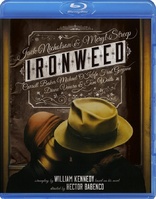
Price
List price:Amazon: $21.41 (Save 29%)
Third party: $21.41 (Save 29%)
Only 3 left in stock (more on the way).
Movie rating
6.5 | / 10 |
Blu-ray rating
| Users | 0.0 | |
| Reviewer | 3.0 | |
| Overall | 3.0 |
Overview
Ironweed (1987)
An ex-ballplayer returns to his hometown, during the Depression, in the hope of finding peace.
Starring: Jack Nicholson, Meryl Streep, Carroll Baker, Michael O'Keefe, Fred GwynneDirector: Hector Babenco
| Drama | 100% |
Specifications
Video
Video codec: MPEG-4 AVC
Video resolution: 1080p
Aspect ratio: 1.78:1
Original aspect ratio: 1.85:1
Audio
English: DTS-HD Master Audio 2.0
48kHz, 16-bit
Subtitles
None
Discs
25GB Blu-ray Disc
Single disc (1 BD)
Playback
Region A (locked)
Review
Rating summary
| Movie | 2.5 | |
| Video | 4.0 | |
| Audio | 4.0 | |
| Extras | 0.0 | |
| Overall | 3.0 |
Ironweed Blu-ray Movie Review
An 'A' for acting and a 'D' for depressing.
Reviewed by Jeffrey Kauffman April 4, 2013Meryl Streep is an “inside out” actress, perhaps our greatest living proponent of the oft-derided Method, a performer who finds the essential emotional truth of a character and builds her depiction from that fundamental foundation. This is one reason why Streep so often seems to virtually disappear into her characters. Jack Nicholson, for all of his undeniable brilliance, is an actor with such an oversize persona that even his most striking performances seem suffused with some ineffable “Jack”-ness that never totally goes away. Streep’s influence may well have ameliorated that tendency on Nicholson’s part with regard to Ironweed, a pretty dour and depressing outing that nonetheless finds Meryl in typically brilliant “disappearance” mode and Nicholson not far behind in one of his most visceral and moving performances. Based on a Pulitzer Prize winning novel by William Kennedy (who adapted his work for the screen), Ironweed is, despite a large and colorful supporting cast, by and large a so-called “two hander” that posits Streep and Nicholson as two of the walking wounded in the depths of the Depression in Albany, New York. We’re given a bit more of the back story of Francis Phelan (Nicholson) than that of Helen Archer (Streep), though courtesy of Streep’s ever meticulous approach one feels Archer’s history even if it isn’t as overtly detailed. The film is often quite difficult to sit through if only because the two main characters are so obviously damaged, but for those with the fortitude to persevere, there may not exactly be the redemption promised by one of the supporting characters in the film, but there is some very deep emotional content that is at the very least occasionally cathartic.
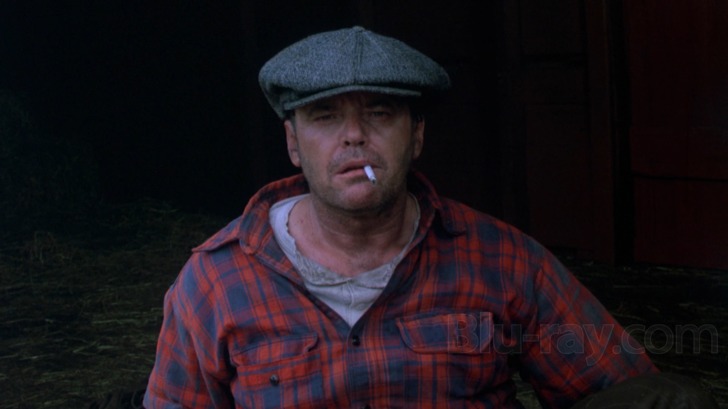
Streep of course has come in for her share of critical brickbats, especially from those who consider her penchant toward dialects a sign of a preening ego rather than the serious attempt of an actress to represent the truth of a given character. Streep is certainly back in “full accent” mode here, albeit with a flat, harsh nasal tone that reveals the wasted remnants of Helen’s inner life. Nicholson always sounds like Nicholson, just one reason why his personal characteristics often seem to at least compete with (if not overwhelm) his performances, but he has some remarkable moments throughout Ironweed that reveal some rather stunning emotional depths. An early scene finds Francis attempting to earn a little scratch by digging graves at the local cemetery, where he seems to intentionally seek out the burial spot of his long dead infant son. That moment, while perhaps just a bit too self-aware for its own good, offers an instant window into the tormented soul of Phelan and provides the first of many standout moments for Nicholson.
We soon discover that Francis has seemingly stumbled through life for some time and has been involved in several deaths, all of which now literally haunt him in the form of alcoholic hallucinations. We’re provided brief glimpses via flashback into at least some elements of the character’s rather convoluted past, just enough to give context while providing a bit of dramatic impetus to the “current day” events. But the fact is that much of Ironweed is a fairly static enterprise, which may be one reason why, despite almost uniform raves for Streep and Nicholson when the film was released (they were both nominated for Academy Awards for their roles), the film seemed more a succès d’estime than a bonafide smash. The film actually seems quite like a latter day Eugene O’Neill affair, full of damaged characters engaging in semi-poetic dialogue that is distinctly at odds with their squalid surroundings, but there’s little of O’Neill’s narrative push in Ironweed, resulting in an actors’ showcase that is all about character, with little story to move it forward.
The main gist of Ironweed is twofold, with Francis attempting to reconcile both with Helen, who has been his on again off again companion for some time, as well as perhaps more significantly with his “real” family, whom he abandoned years previously after the death of his infant son, which was due to Francis’ drunken negligence. The erstwhile family reunion arc gives Ironweed even more opportunity for superb acting, this time on the part of Carroll Baker, as Francis’ long suffering (and long estranged) ex-wife, a woman who seems to have accepted the cruel hand fate has dealt with her and who has learned to live with perhaps an equal amount of resignation and deeply tamped down resentment. It’s actually in these scenes where dialogue is only part of the equation and where Nicholson must rely on pure expressive power that he does what is arguably his best work in the film. There’s a depth of sadness and regret in Nicholson’s eyes in some of these moments that is almost palpable.
There’s an undeniable sadness, even moroseness, to Ironweed that makes the film slow going, something only exacerbated by its rather lethargic pace and extreme length. Director Hector Babenco (Kiss of the Spider Woman) is more concerned with creating a mood, something he does quite well in the film, but William Kennedy’s screenplay offers little inherent drama or the oft-maligned idea of character arc, since it’s so patently obvious that Francis and Helen are never going to change. There are hints of a change when Francis deigns to return to his ex-wife and attempts, unsuccessfully, to reconcile with his two grown children, but it’s seems a foregone conclusion going in to this enterprise that it’s a fool’s errand. Instead we're privy to Francis' flashbacks, which only detail a seemingly unending series of tragedies and unfortunate circumstances, as well as his increasingly unbalanced current mental state as evidenced by the "ghosts" from his history who show up regularly to haunt him. That leaves the coda of sorts that appends this film to deal in some fairly pointless violence and tragedy and an ultimate feeling of hopelessness. It’s enough to drive someone to drink.
Ironweed Blu-ray Movie, Video Quality 
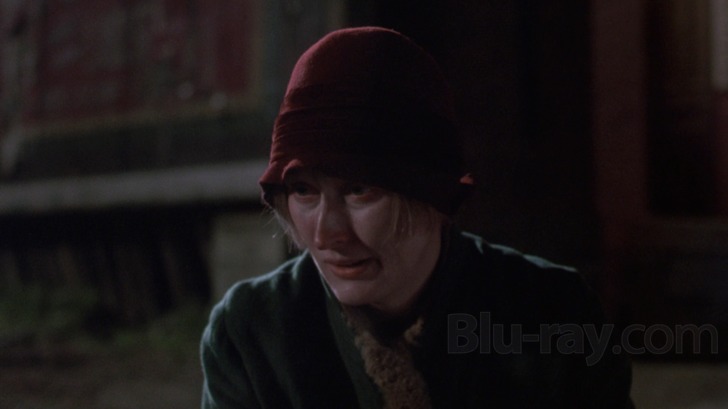
Ironweed is presented on Blu-ray courtesy of Olive Films with an AVC encoded 1080p transfer in 1.78:1. Babenco and cinematographer Lauro Escorel toe a fine line between grittiness and a kind of old school glamour throughout much of this film, with richly detailed sets and location work contrasting with the squalor and destitution of Depression era Albany. The elements used for this high definition transfer are in excellent shape overall, with very little damage to report. The overall image is on the soft side, but is accurately representative of the original theatrical exhibition. There are some minor passing issues with mosquito noise from time to time in some of the darker nighttime sequences (you'll notice it in the final climactic scene at the rail yard), but colors are nicely saturated and contrast is consistent, giving Ironweed a nicely natural and filmic appearance.
Ironweed Blu-ray Movie, Audio Quality 
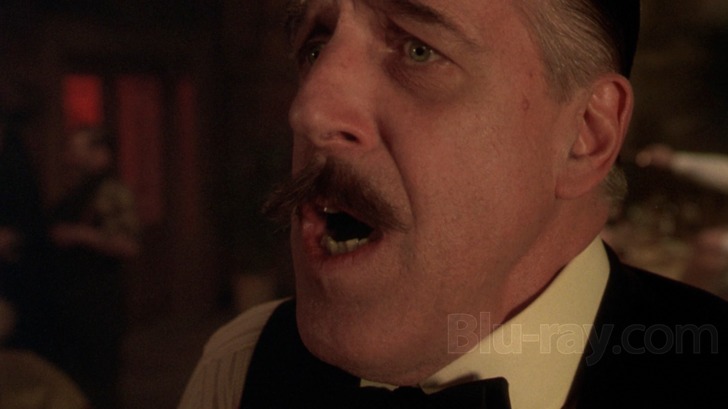
Ironweed features a lossless DTS-HD Master Audio 2.0 track that ably supports the film's penchant for dialogue as well as some of its unusual music (Streep sings and the film also co-stars Tom Waits, who contributes a song to the soundtrack). Fidelity is very good, though stereo separation is virtually negligible. Dynamic range is also relatively limited until the final violence erupts in the film's climax.
Ironweed Blu-ray Movie, Special Features and Extras 
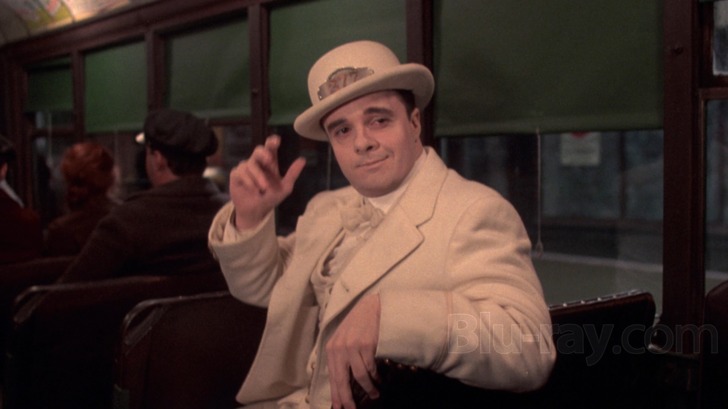
No supplements are offered on this Blu-ray disc.
Ironweed Blu-ray Movie, Overall Score and Recommendation 
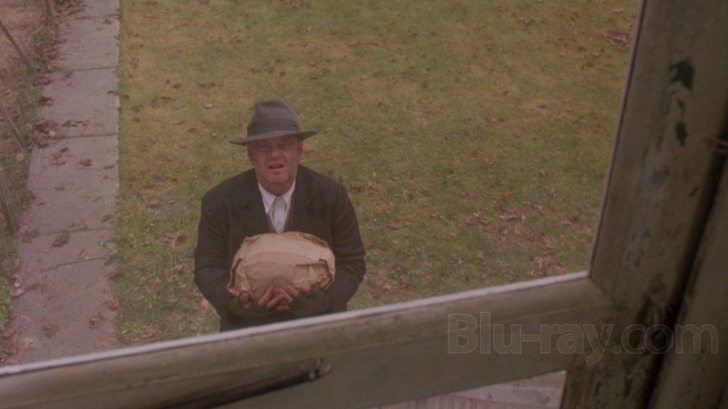
It's hard to get really enthused about a film as relentlessly dour as Ironweed. At nearly two and a half hours in length, there's simply so much trauma and tragedy to wade through in this outing that it gets to be a bit overwhelming which may in turn lead to some audience members ultimately feeling numbed by it all. For those who aren't overly concerned about story arcs and three act screenplays, Ironweed does provide showcases for Streep and Nicholson, as well as a stellar supporting cast that includes Carroll Baker, Tom Waits, Fred Gwynne (one Herman Munster for you less culturally astute folks), and a young Michael O'Keefe and Diane Venora. But this is one pretty depressing picture which leaves very little other than a feeling of hopelessness in its wake. This Blu-ray looks and sounds quite good and fans of the film should be well pleased.
Similar titles
Similar titles you might also like

Something Wild
1961

Tommaso
2019

First Reformed
2017

The Pawnbroker
1964

Sex Madness
1938

The Browning Version
1951

Mammoth
2009

Way Down East
1920

Detachment
2011

Heaven Knows What
2014

Death of a Salesman
1985

The Entertainer
1960

The Rocket
2013

A Master Builder
2013

The Goldfinch
2019

The Club
El Club
2015

Make Way for Tomorrow
1937

Horse Money
Cavalo Dinheiro
2014

Looking for Mr. Goodbar 4K
Slipcover in Original Pressing
1977

Sansho the Bailiff
山椒大夫 / Sanshô dayû
1954